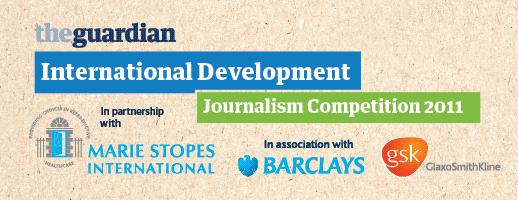Next Journalism:
journalism
Scholarships Available: Global Investigative Journalism Conference 2011 in Kyiv, Russia
Job Opening: News Editor/ Reporter for Galaxy TV (Nigeria)
Home-Based Job: Middle Eastern Journalists Wanted for US-Based Arab American Newspaper
Apply for The Financial Times - Peter Martin Fellowship in London

Job Opening: Deputy News Editor for Network News 24 (Nigeria)
Job Opening: Morning Writer for Newsclip Media Monitoring (South Africa)
Freelance Community Reporter Wanted for Informante Newspaper (Namibia)
Freelance African Reporters Wanted for Bloomberg
Job Opening: Journalist/ News Reporter for OurOldSchool.com (Ghana)
Open to African Journalists: €5,000 Lorenzo Natali Journalism Prize

The Mary Wright Minority Fellowship for Journalists of Color (New York)
Global Shining Light Award for Investigative Journalism in a Developing Country
Call for Candidates: Bayeux-Calvados Awards for War Correspondents
Job Opening: Community News Reporters for OP Koerante (Die Burger, South Africa)
Job Opening: News Editor - Africa for Inter Press Service (Africa-wide)
Job Opening: Business Journalist for CEO Communications (South Africa)
Course on Reporting on Children in the Media (Media Monitoring Africa/ Wits Journalism, South Africa)
The Guardian 2011 International Development Journalism Competition on Global Poverty
Media Print Interns (Canadian Residents) Wanted for Journalists for Human Rights (to be based in Ghana/ Malawi)
Opportunity International's Tanzania Correspondent Contest (for US residents)




